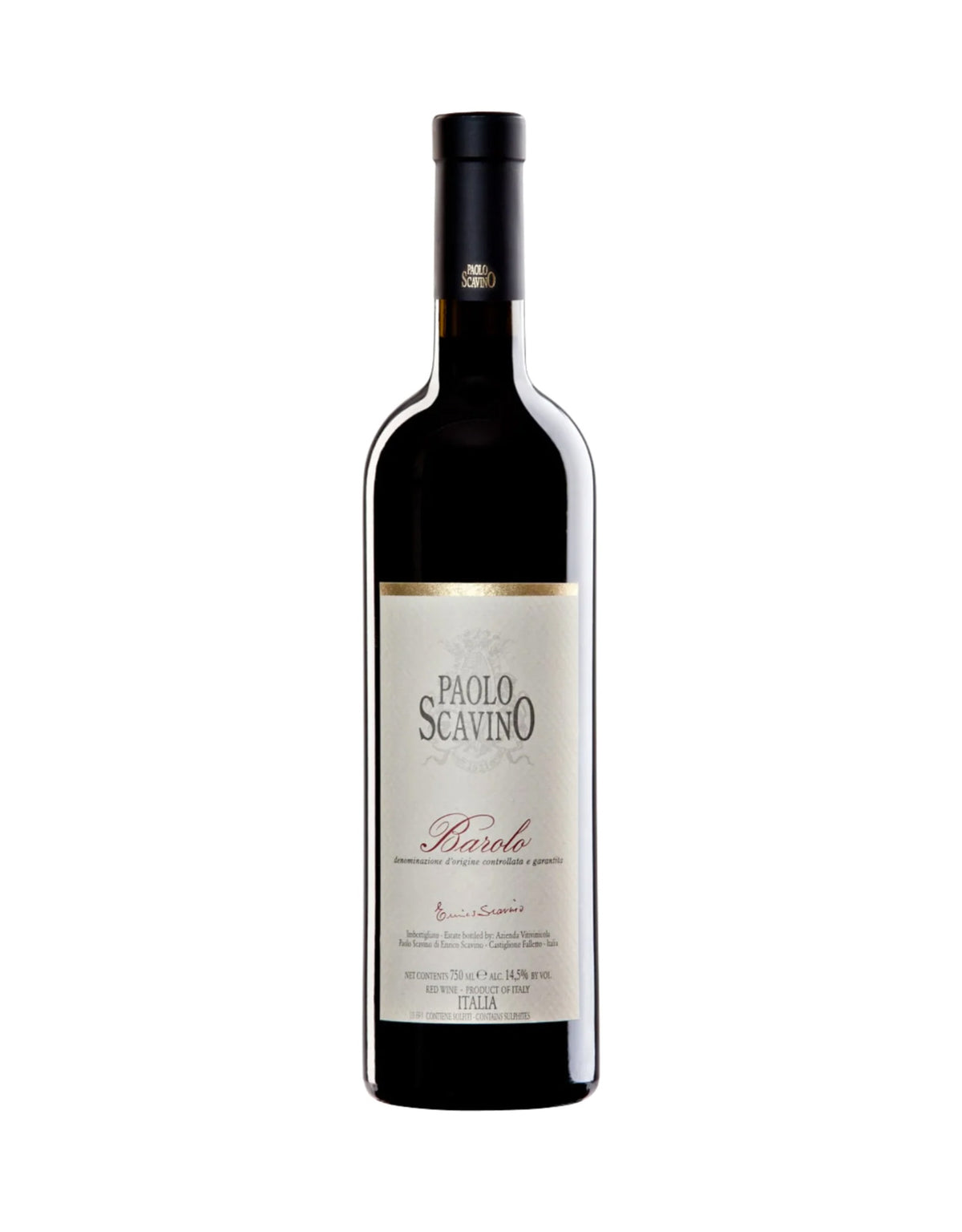Paolo Scavino Barolo 2020
- Online: Available
- In-Store Stock Now: 9 units.
Product description
Paolo Scavino is a historical winery in the Barolo region. It was founded in 1921 in Castiglione Falletto by Lorenzo Scavino and his son Paolo. Farming has always been a family tradition and passion. Enrico Scavino and the daughters Enrica and Elisa, the fourth generation, run the family Estate. He started to work full-time in the winery in 1951 when he was ten years old. A young winemaker who inherited the passion and devotion for the land he belongs to. Through over 60 years of experience, his focus has been to invest in Nebbiolo's important cru to show each terroir's uniqueness. The love and respect inspire their work for their territory. They pursue purity of expression, complexity and elegance for their wines from the three local grapes Dolcetto, Barbera and Nebbiolo. These values and culture have been carried on and never changed. This Barolo comes from the best plots of their seven crus. The diversity of soils, exposure and altitude characterize this small but very important terroir. Unifying these diversities, the Barolo offers harmony and complexity with an overall character of the zone.








